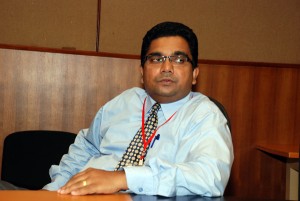Factors to consider after passing A Level
View(s):Students find themselves at cross roads once they have finished their secondary schooling with the Advanced Level examinations. Many thoughts go through their minds at this important juncture. The situation is complicated by the plethora of options and opportunities that are available to students in the present context. Hence the need to make concerned and informed judgments regarding the future. 
TO START WORK OR CONTINUE STUDYING
The first decision students should make is whether to seek employment based on A Level qualifications or to continue education at a Tertiary Level. The option of combining both will also be a thought that will cross the mind. It is here that one should be aware of the realities of the load of work and the expectation of employers. In today’s context entry into any Managerial position requires a basic degree or at least part qualification with a professional body. Alternatively employers will consider proven track record if such performance has been for a considerable period of time (Often ten years or more). Hence those with tertiary education will be at an advantage in terms of time when reaching the level of management. In short the expectation of the base line expectations of employers is above secondary education.
PROFESSIONAL OR ACADEMIC COURSES
Many professional organizations are now aggressively marketing their professional bodies in an attempt to get more people to pursue their professional qualifications. Professional Institutes are primarily concerned with furthering the interest of the discipline which they represent.
A professional qualification aims to equip a student with the necessary skills to engage in the practice of their profession. These could range from Architecture to Accounting, Law to Engineering and Surveying to Marketing. The focus is any of these professional courses will be in developing an individual to demonstrate the capacity to deliver services in the respective discipline. An academic qualification on the other hand will attempt to develop the mental capacity of the individual to be able to understand the problems and issues of the world and develop solutions in a thoughtful and creative manner. The focus of an academic programme is to develop reasoning and analytical skills to bring out an individual with intellectual maturity. Hence of much broader context with intended an academic setting when compared with the parochial interests pursued by professional institutes.
WHAT DEGREE TO CHOOSE
Gone are the days when students had to select only between the Arts and the Sciences. The present knowledge era presents students with a range of excitement courses to pursue from Business Management to Biotechnology, Software Engineering to Aeronautics and Psychology to Pharmacology. The selection is largely a matter of choice based on the aptitude and interest of the individual. Availability and affordability are no doubt constrains. However students should be mindful of employment prospects and opportunities that will be available in the future. It is desirable that those entering the workplace in the new era should be globally employable in keeping with the pace of change.
FACTORS TO CONSIDER
When selecting a university or institute, is important for prospective students to look at several factors that would eventually determine the quality of the education they will receive.
Reputation and standing of the university.
Reputation and standing of the institute providing the degree.
Quality of the academic faculty delivering the programme
Quality of the physical infrastructure available within the facility.
The modules that would be covered in the course that is preferred
Type of assessment and methods of evaluation used.
Nature of scrutiny and monitoring by quality assurance agencies.
Quality of the graduates produced and standing of the alumni.
LONG TERM IMPLICATIONS
One has to bear in mind that any education pursued by a person has implications for life. While the options for selection up to the end of Secondary Education may be limited, the picture changes drastically thereafter. It goes without saying that the path and the place selected soon after A Levels will eventually determine employment and a subsequent career. Hence it is of utmost importance that the decision of ‘What to do after the A levels’ is an informed decision taken after much thought and care. Getting carried away in Marketing Gimmicks and promises held out to attract unsuspecting students can have far reaching consequences.
-Mr. Harshana D. Perera – Chief Operating Officer IIHE
Follow @timesonlinelk
comments powered by Disqus

















